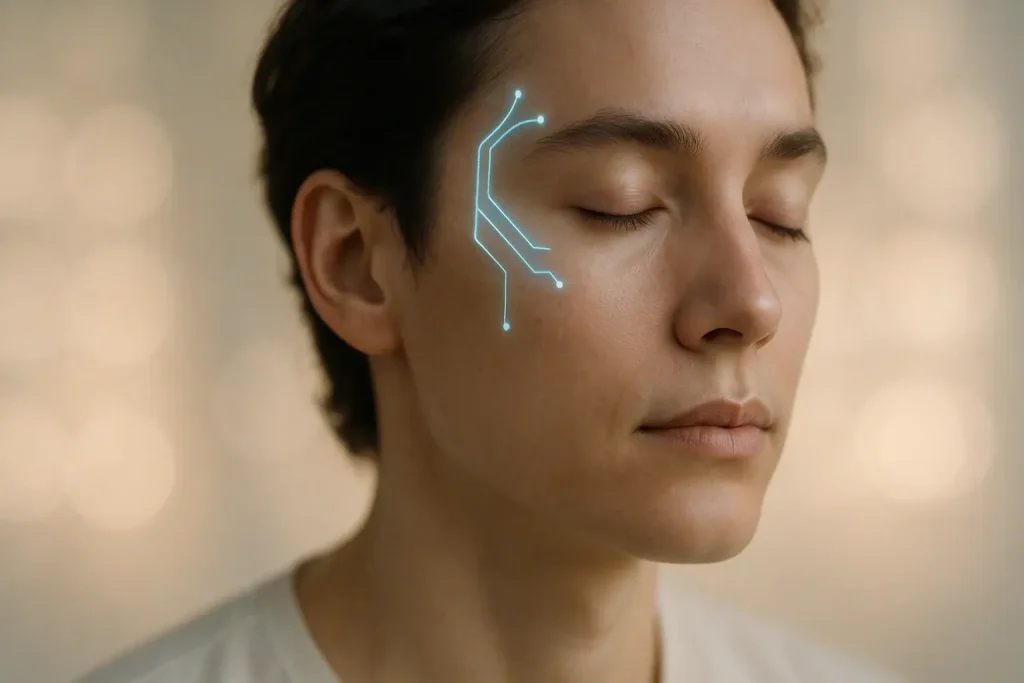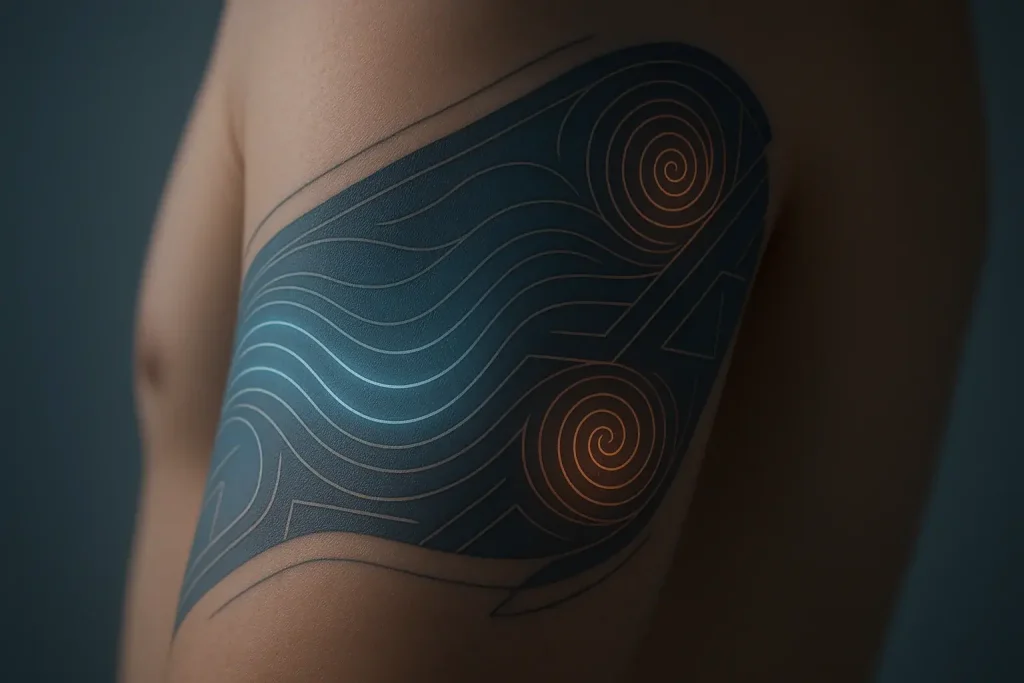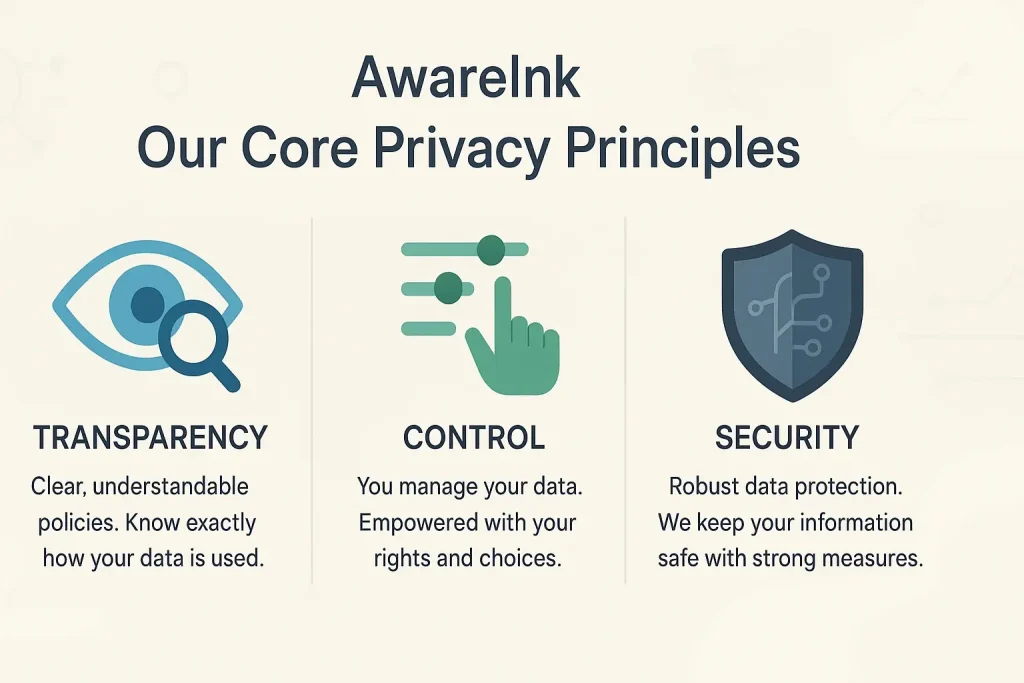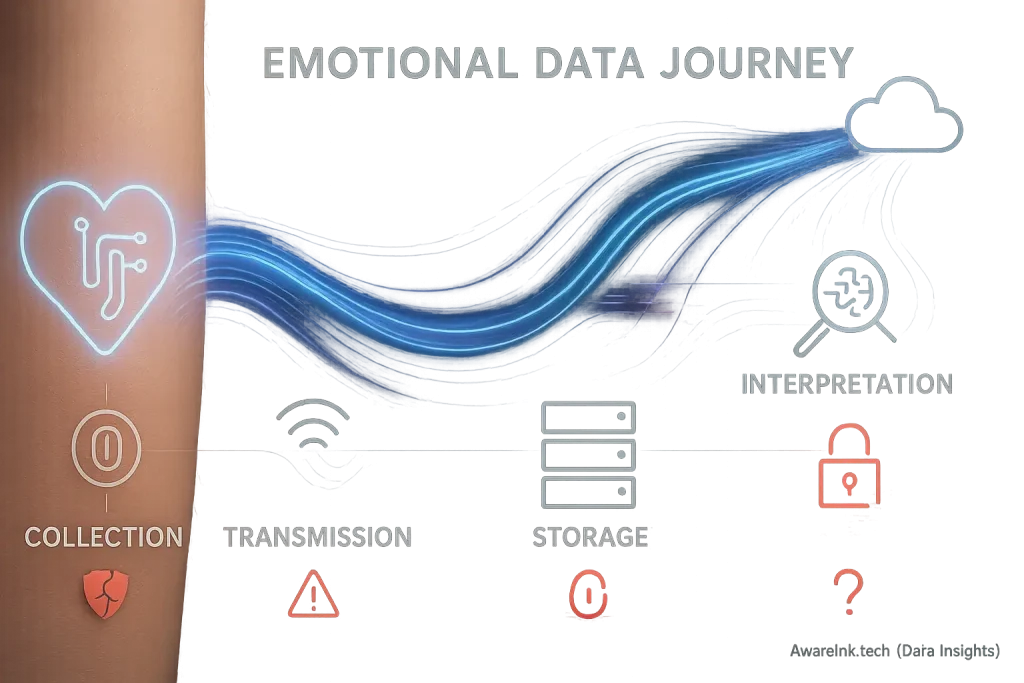Beyond the Desk: Unpacking Mood Tattoos for a Smarter Work-Life

Ever felt that familiar knot of workplace stress tightening? Even when you try to unwind. Mood-adaptive smart tattoos present a novel concept for understanding these pressures. These devices could potentially help individuals manage unseen emotional tolls. AwareInk.tech now investigates how this technology might reshape our professional well-being, particularly concerning workplace stress and employee well-being.
Workplace tech often promises significant benefits. Let's be real. It frequently brings hidden risks of surveillance and undue pressure if not ethically managed. AwareInk.tech's analysis highlights this unspoken truth. The idea of mood tech at work, aimed at improving emotional intelligence, sounds appealing. It simultaneously raises serious questions about privacy and individual control. This technology must empower individuals. It cannot merely track them if it is to be accepted.
Mood-adaptive smart tattoos present a dual nature in professional settings. They offer immense potential for positive impact on stress management and burnout prevention. Serious risks for privacy and ethical boundaries arise with poor or unethical implementation. AwareInk.tech's stance is clear: employee consent is absolutely foundational. Robust data control mechanisms are entirely non-negotiable for any successful, ethical workplace integration. This balance demands our critical examination.
Your Personal Stress Radar: Individual Mood Monitoring at Work
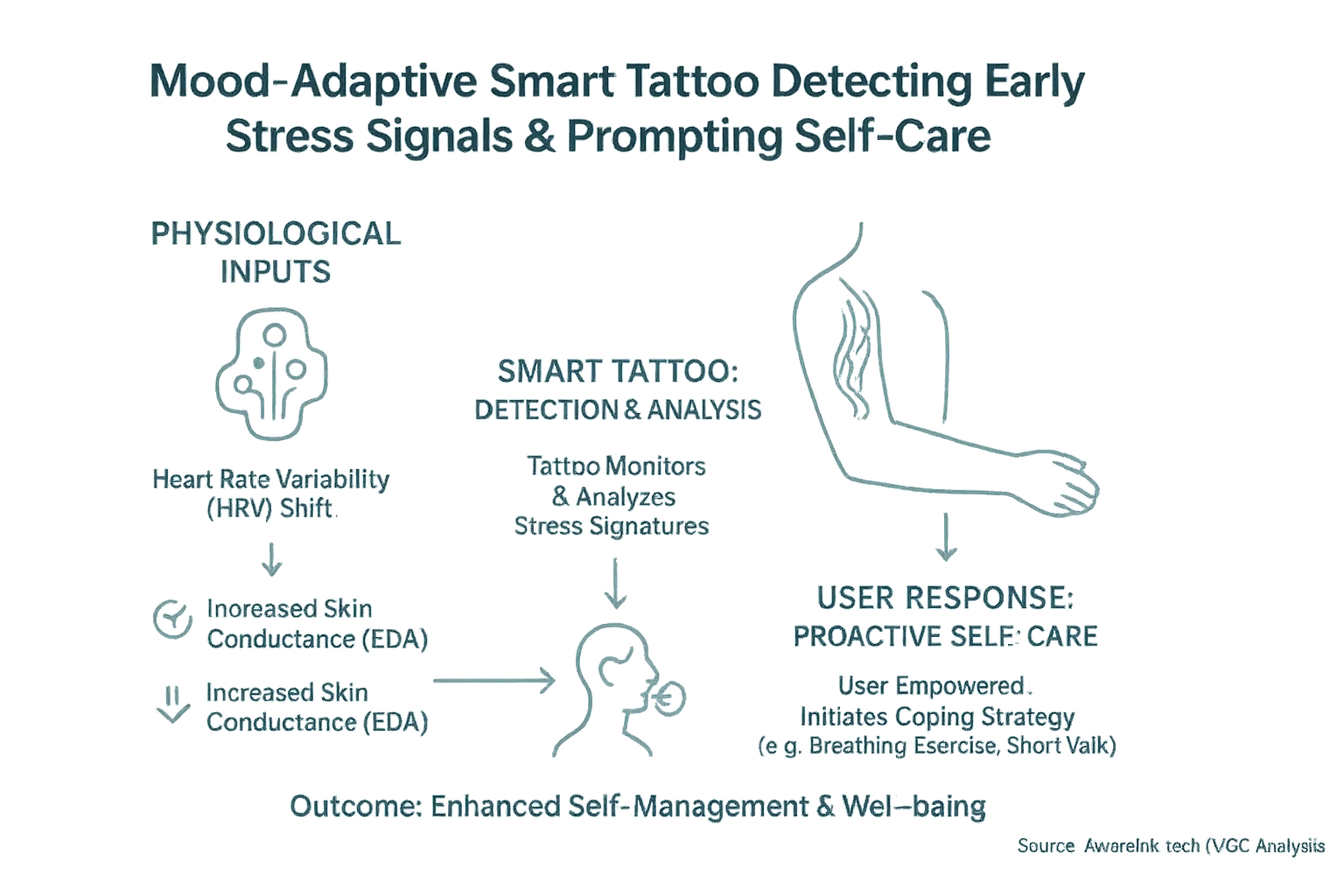
A mood-adaptive smart tattoo can become your personal stress radar. It silently tracks key physiological indicators. Think heart rate variability or subtle shifts in skin conductance. Many users find this technology helps them catch early stress signals. Often, this happens before they consciously register feeling overwhelmed. Imagine you are deep into a complex project. Deadlines loom. Your smart tattoo subtly shifts its pattern. This gentle nudge signals your focus is turning to tension, not peak productivity. That early warning? It can be absolutely game-changing for self-management.
This real-time physiological feedback empowers proactive self-regulation. AwareInk.tech's analysis of typical user scenarios shows individuals quickly learn their unique stress signatures. You can identify personal triggers. Then, you might implement immediate, effective coping strategies. Perhaps a quick breathing exercise. Maybe a short walk. This continuous loop builds genuine resilience over time. It is about understanding your body's cues. It fosters a proactive approach to well-being, moving beyond simply reacting to burnout. The goal is sustained calm and focus.
Let's be clear about an unspoken truth. The true power of these smart tattoos lies in deeply personal insight. The data generated is for you. It helps you understand your own patterns. It empowers you to take control of your emotional state. This technology enhances self-awareness. It is fundamentally distinct from external monitoring or workplace surveillance. Your internal landscape remains your own. The tattoo simply offers a private, clearer window into it. What could be more empowering?
Workplace Mood Tech: Your Ethical Checklist
Workplace Mood Tech: Your Ethical Checklist
1. Is the use of mood-adaptive smart tattoos entirely voluntary for employees?
2. Is all collected mood data anonymized and aggregated by default, without individual identification?
3. Do employees have full, transparent control over their personal mood data (access, deletion, sharing)?
4. Is the mood data used exclusively for employee wellness programs, not for performance evaluation or disciplinary actions?
5. Are data usage policies clearly communicated, easily understandable, and regularly updated?
Beyond the Individual: Mood Tech for Team Dynamics & Empathy
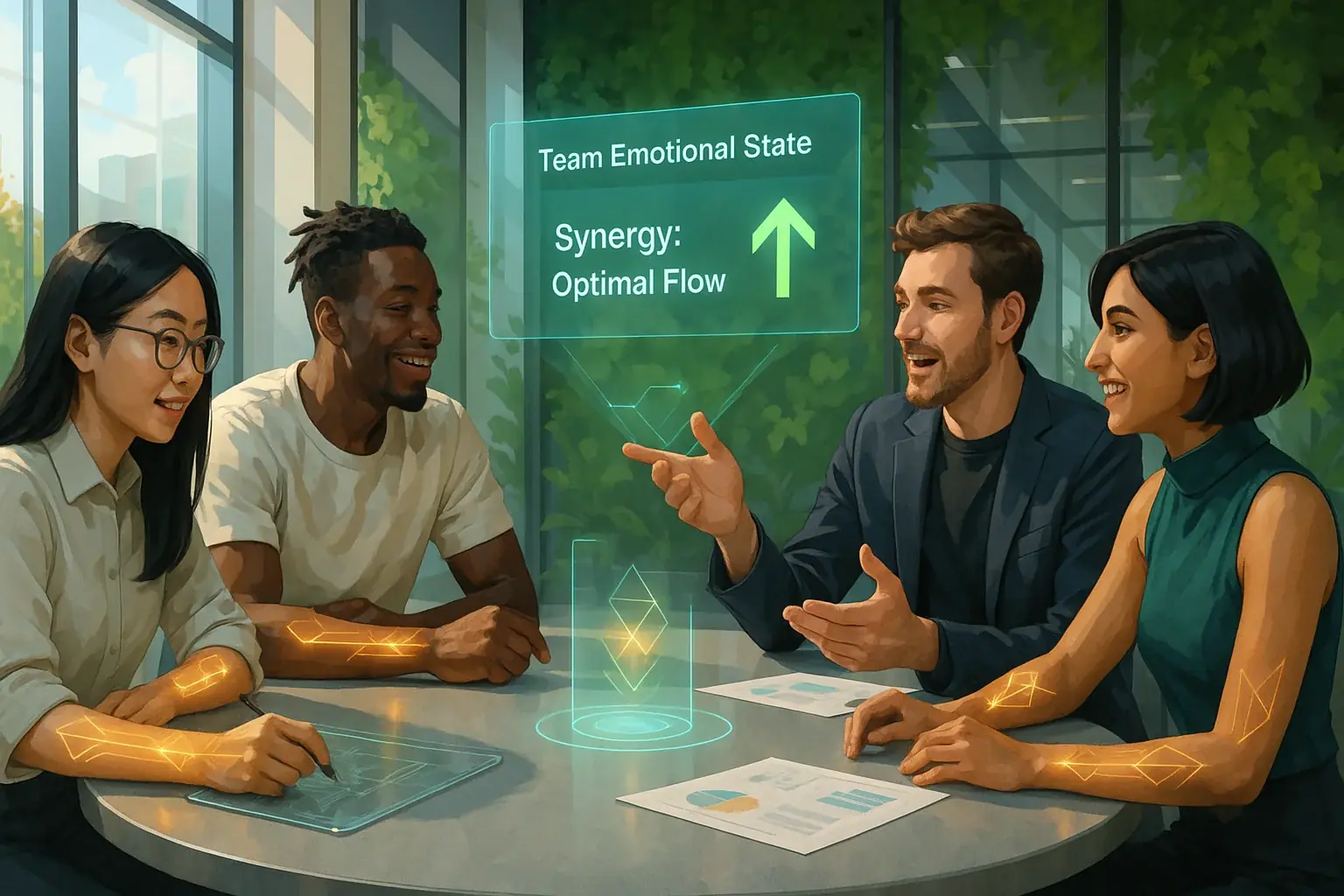
Mood technology extends beyond individual users. Aggregated mood data could reveal team emotional states. This information would remain strictly anonymized for privacy. Such insights might illuminate a team's collective emotional climate. Leaders could then identify shared stress points or understand peak engagement periods. This offers a new lens on team well-being.
These collective insights could foster genuine workplace empathy. Consider this. A team leader observes a consistent 'low energy' pattern within Mondays' collective mood data. This pattern isn't individual; it's shared. Instead of pushing harder, the leader might initiate informal check-ins with the team. This thoughtful action acknowledges a collective need for a gentler start to the week. AwareInk.tech's analysis suggests such understanding could cultivate more informed, responsive leadership.
Yet, an immense ethical tightrope emerges here. Enhanced team empathy is the stated, noble goal. But the risk of misinterpreting aggregated emotion data looms large. Pressure to display 'positive' emotions could become a subtle, serious concern for employees. Emotional policing presents a stark, potential reality. AwareInk.tech's conceptual framework highlights that trust and clear ethical boundaries are absolutely paramount. This imperative holds true even with carefully anonymized and aggregated team-level data.
The Line in the Sand: Privacy & Ethical Boundaries at Work
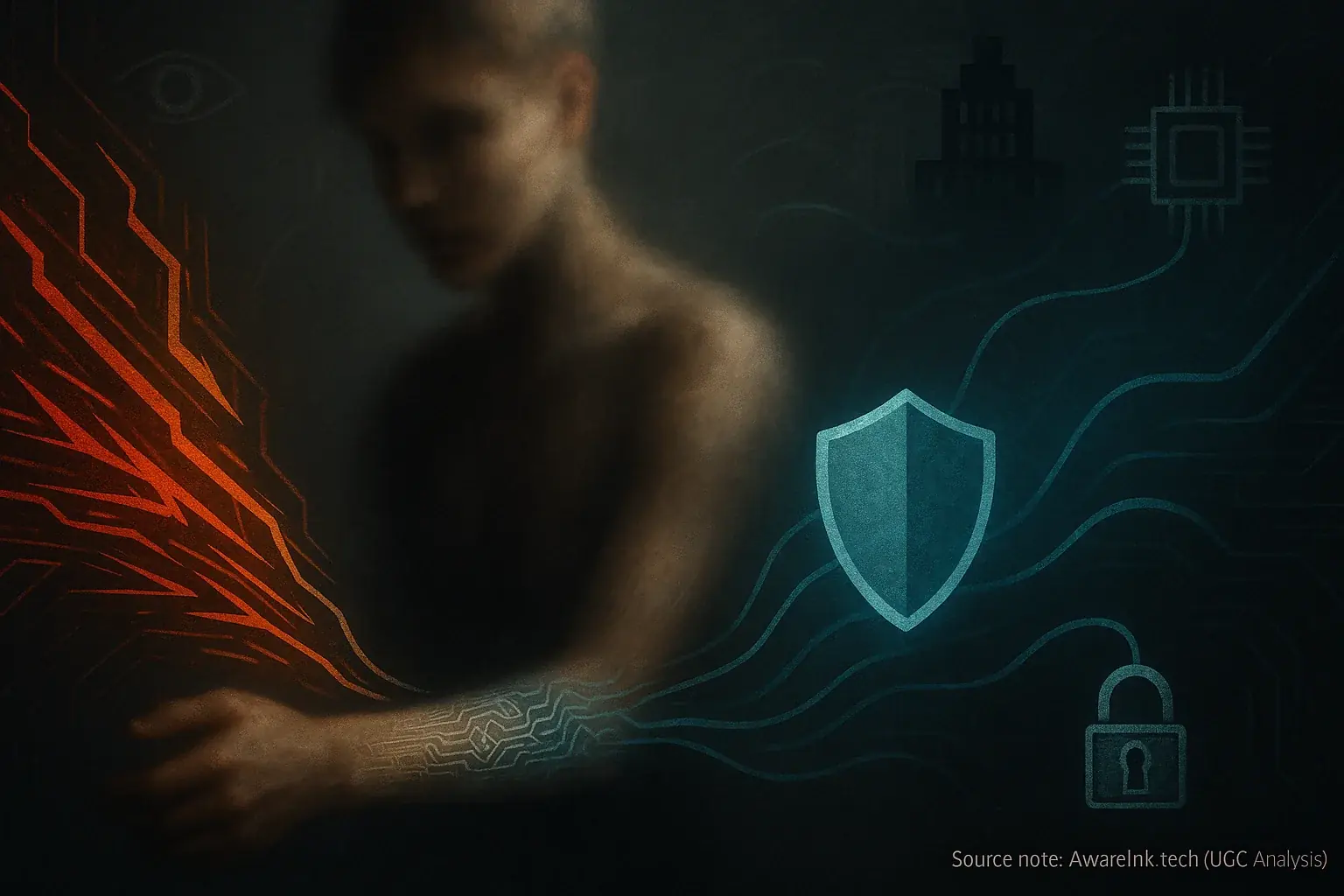
Individual privacy demands absolute protection in any workplace. Mood-adaptive smart tattoos introduce complex ethical questions here. Employers often hold considerable influence. This power imbalance inherently complicates truly voluntary employee participation with such technology. Privacy experts warn: 'voluntary' adoption can easily feel compulsory under workplace pressures. What happens if an employee opts out? AwareInk.tech's analysis suggests unspoken concerns exist that declining participation could subtly impact career progression, a difficult reality to navigate.
Data control presents another critical challenge. Who truly owns the sensitive emotional data generated by an employee's smart tattoo? The employee, the company, or the tattoo manufacturer? Ethical technology guidelines demand policies meticulously define data access, user control over data, retention limits, and secure deletion protocols. Imagine your employer having ongoing access to your daily stress level fluctuations. A high-stress day, perfectly normal within a demanding role, could be misinterpreted by systems or superiors as a lack of resilience or capability. That is a perilous slope.
Algorithmic bias poses a significant threat to fairness. Automated systems interpreting mood data could inadvertently perpetuate discrimination. Ethical frameworks emphasize this risk, particularly for neurodivergent individuals or those whose emotional expressions deviate from programmed norms. These individuals might face misinterpretation. Robust, independently audited, and unbiased algorithms are vital. Continuous human oversight must complement any automated emotional analysis to prevent injustice.
Transparent communication forms the bedrock of trust for workplace technology. Strict data governance and clear ethical boundaries are non-negotiable. Employees must fully understand how their data is collected, used, and protected. Without these foundational elements, mood-adaptive technology in the workplace risks devolving into a sophisticated tool for emotional surveillance, not well-being. AwareInk.tech believes a firm line must be drawn to ensure ethical application and protect employee autonomy.
Balancing Ambition & Ethics: The Future of Mood Tech at Work
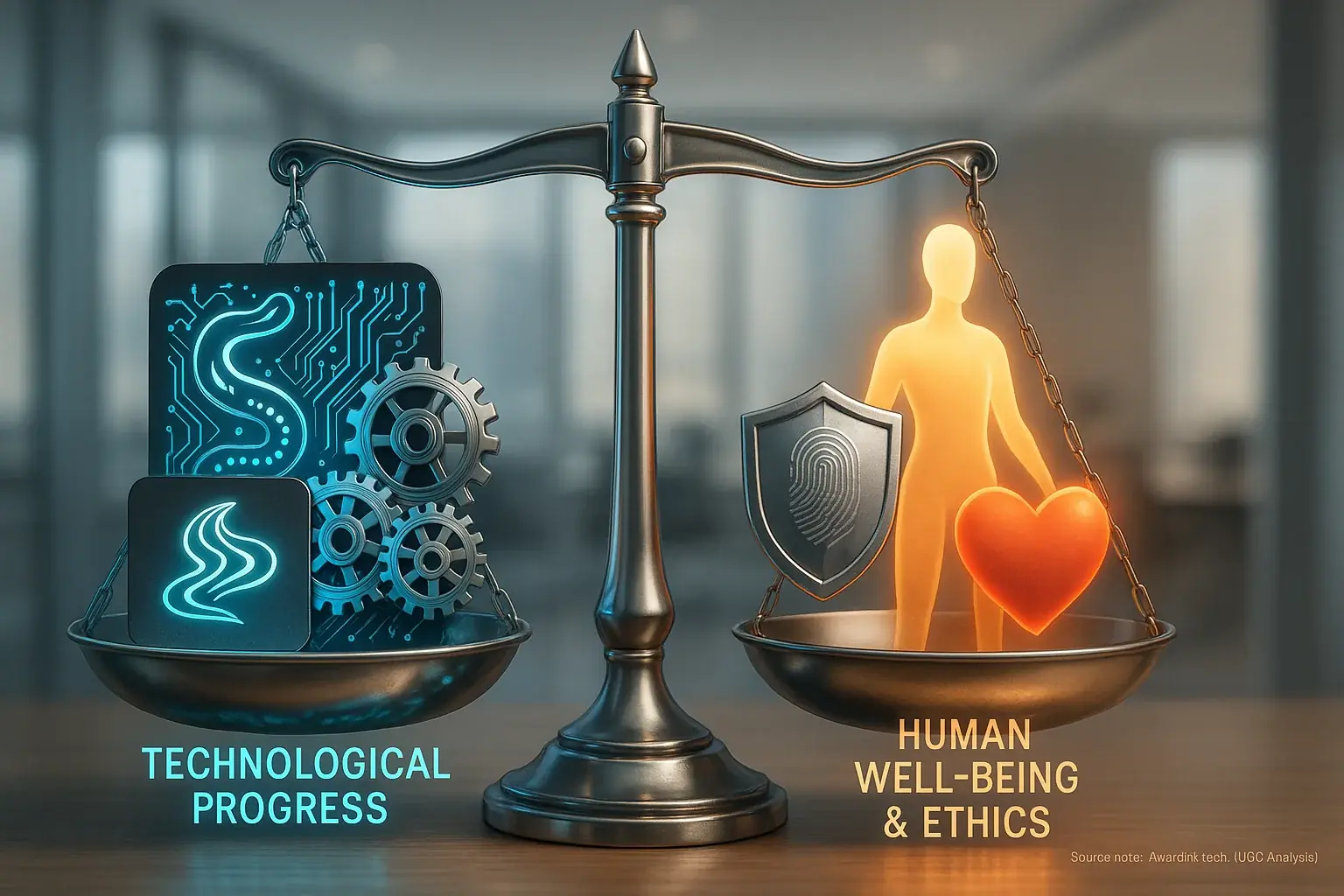
Mood-adaptive smart tattoos offer clear potential for workplace well-being. Their promise enhances individual and team dynamics. This potential actualizes only through implementation rooted in strong ethical principles and deep respect for employee autonomy. Balancing ambition with ethics defines success. The core truth.
True success with workplace mood tech avoids forced adoption or surveillance tactics. This is an unspoken truth. Genuine progress emerges from collaborative approaches where technology empowers individuals and fosters mutual understanding. Employees must always control their personal data. Their narrative matters. Open dialogue builds necessary trust. Sound policies guide.
The landscape of workplace mood technology continues its rapid evolution. Navigating this frontier is complex. AwareInk.tech remains committed to monitoring these developments, providing ongoing insights for both employees and organizations. We help you understand this future. Responsibly.
